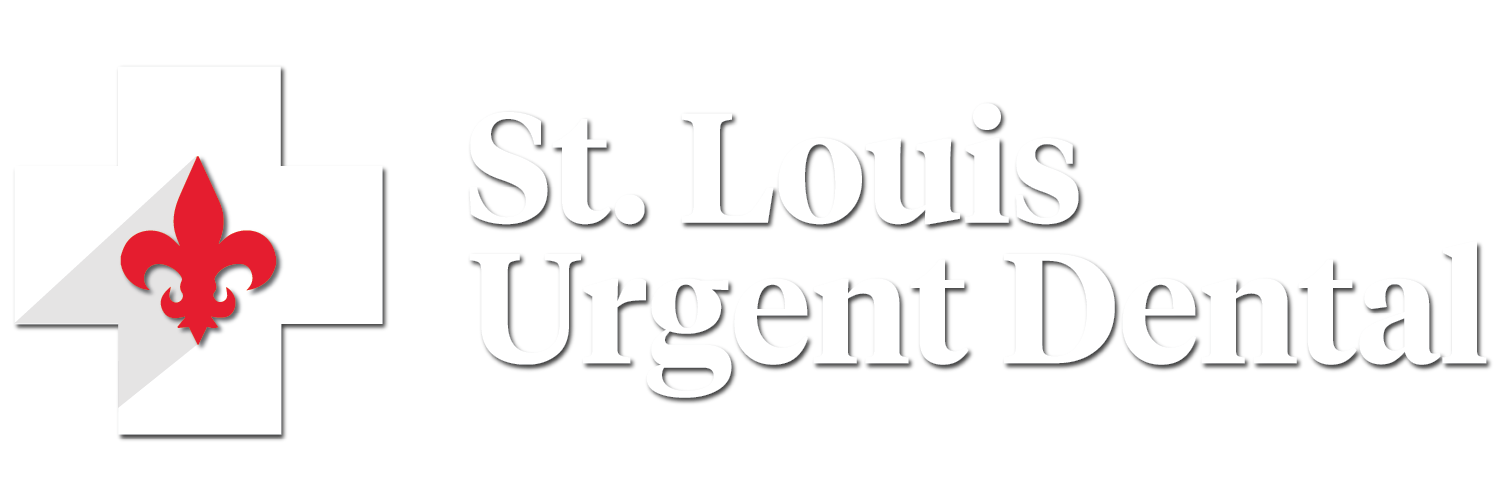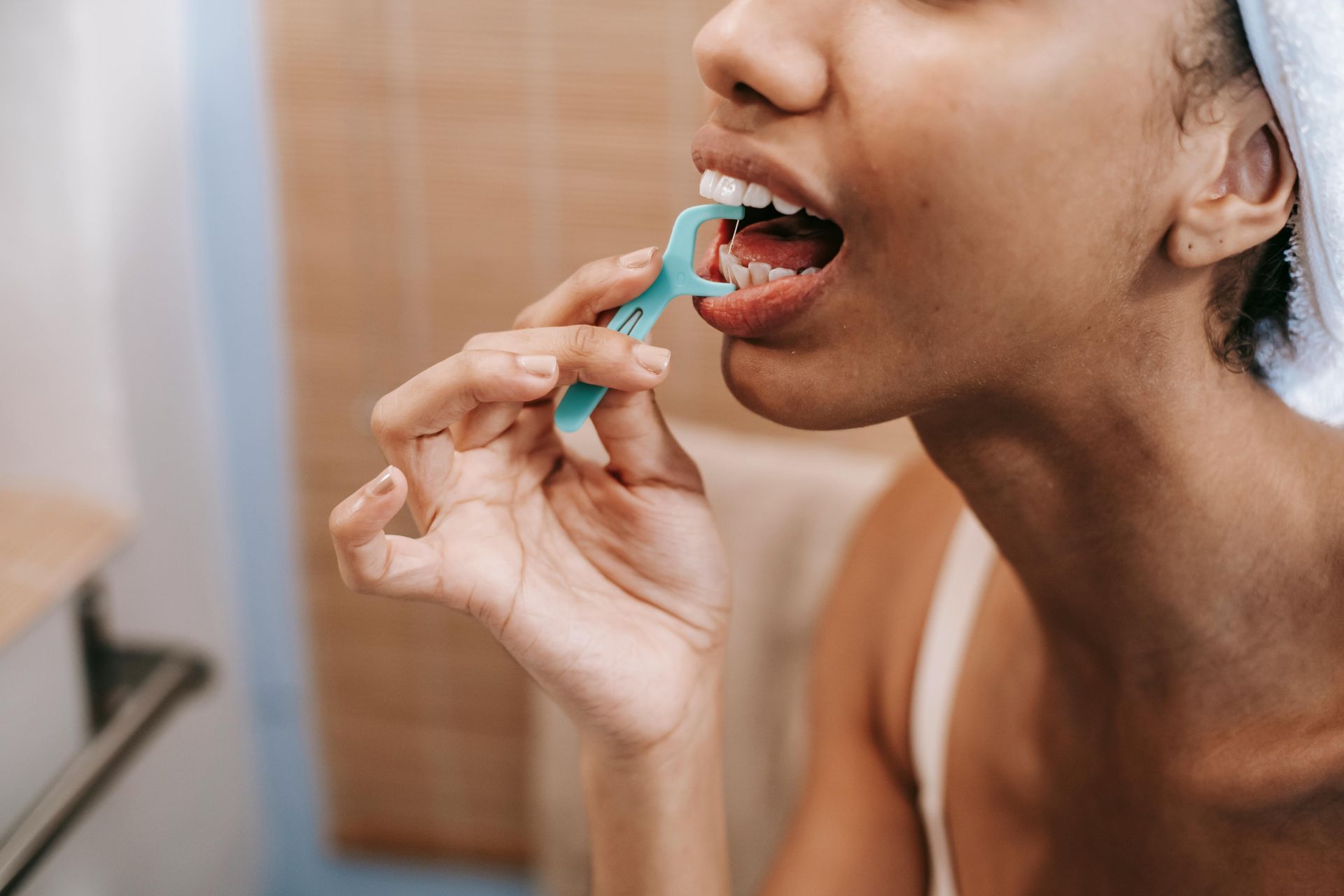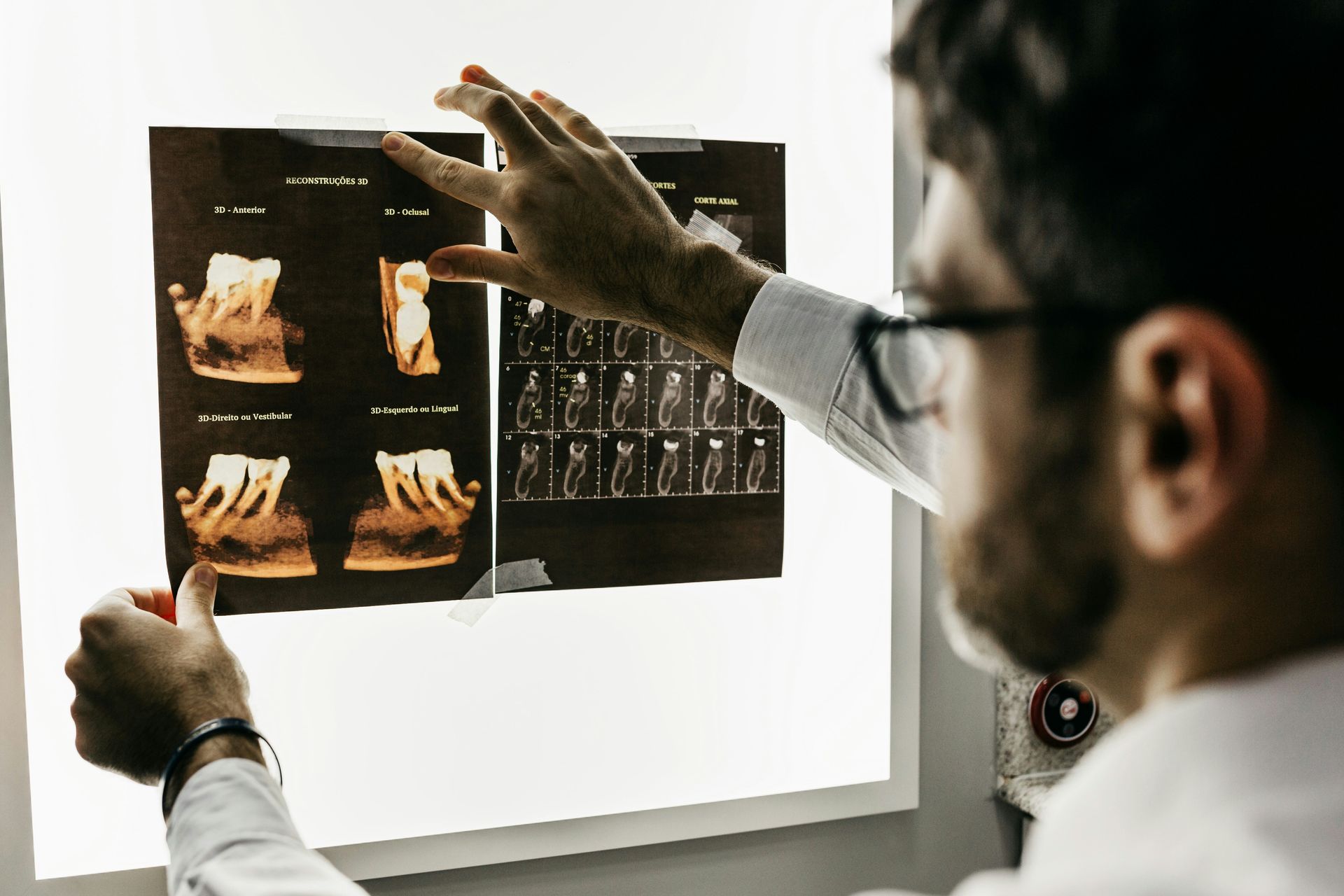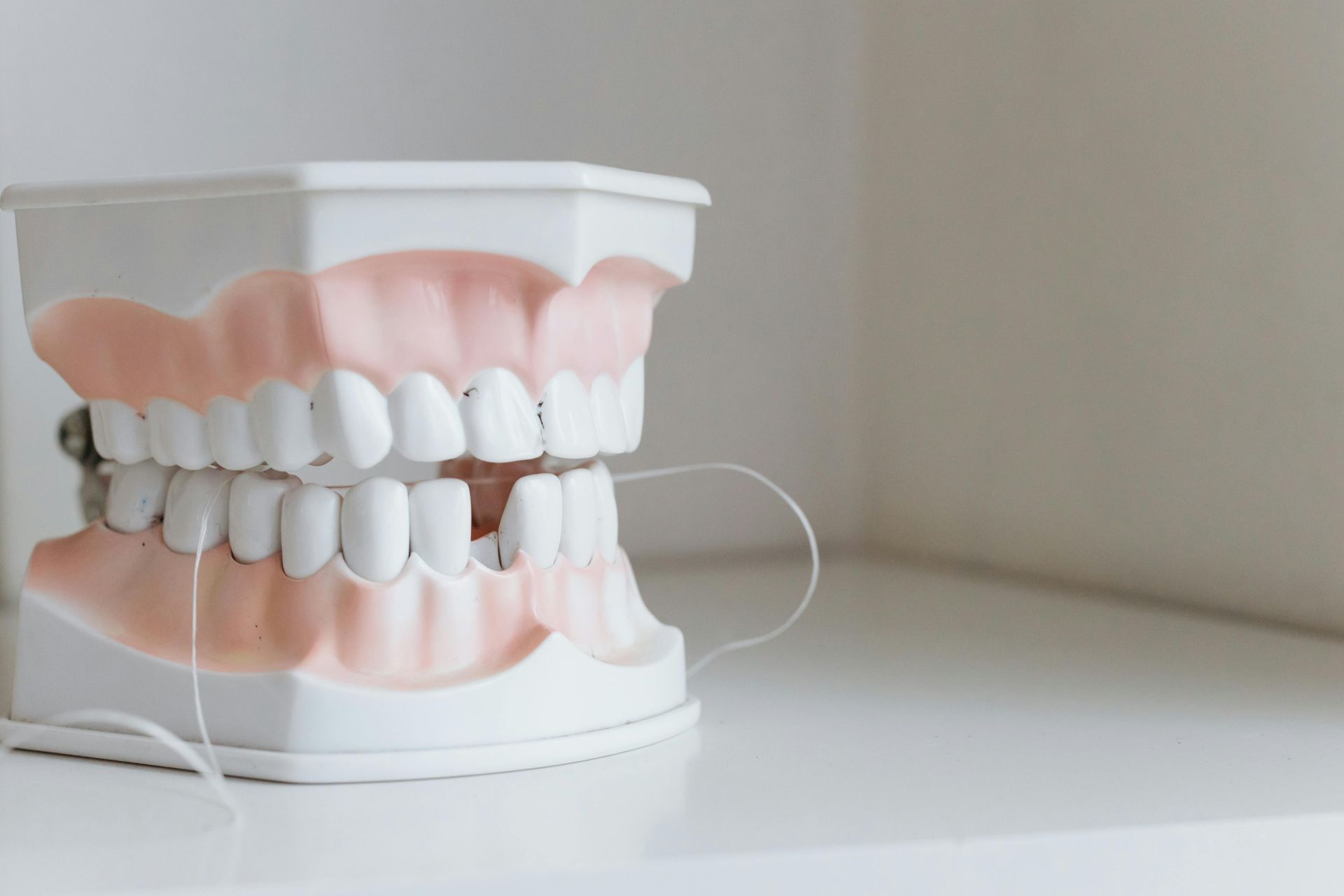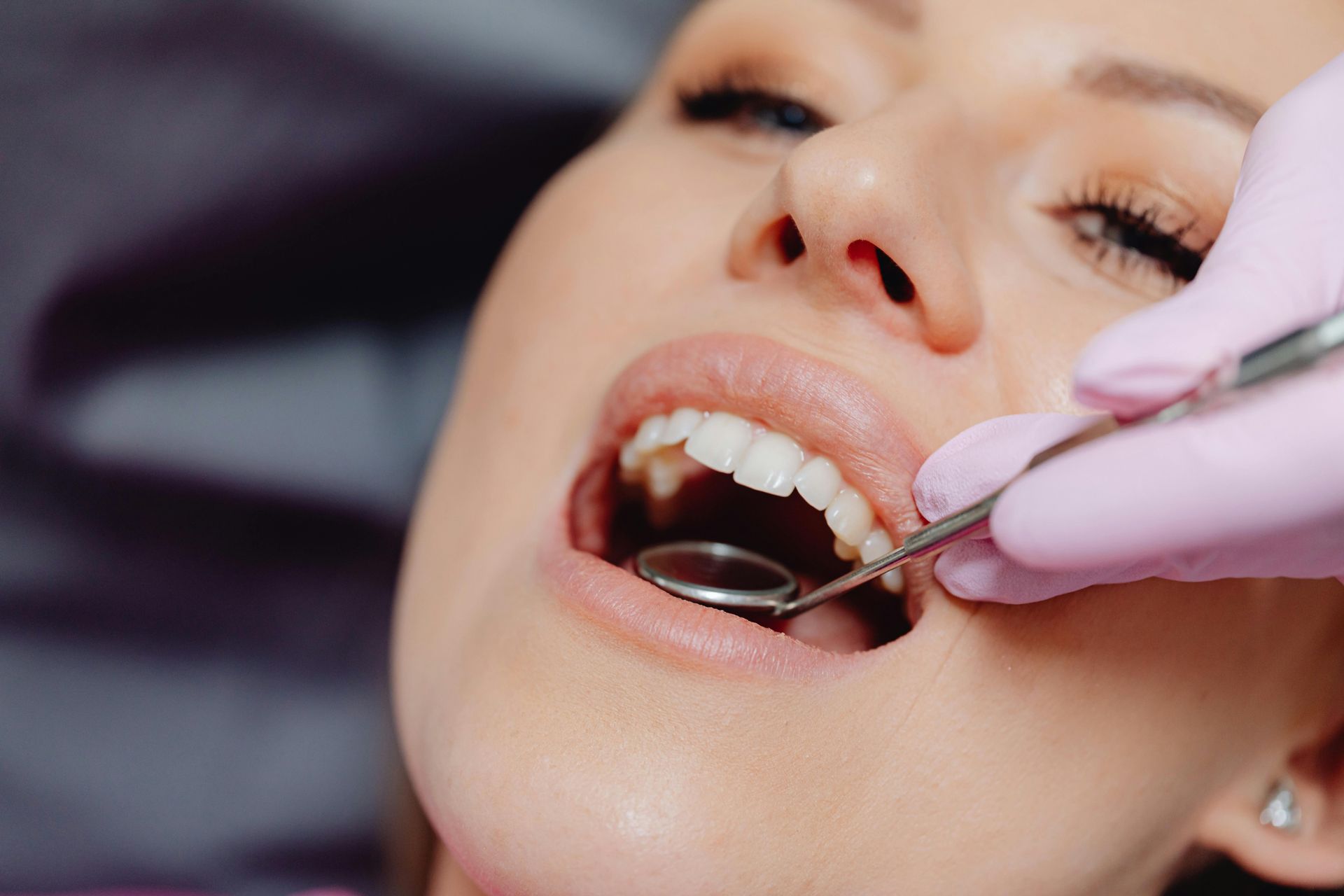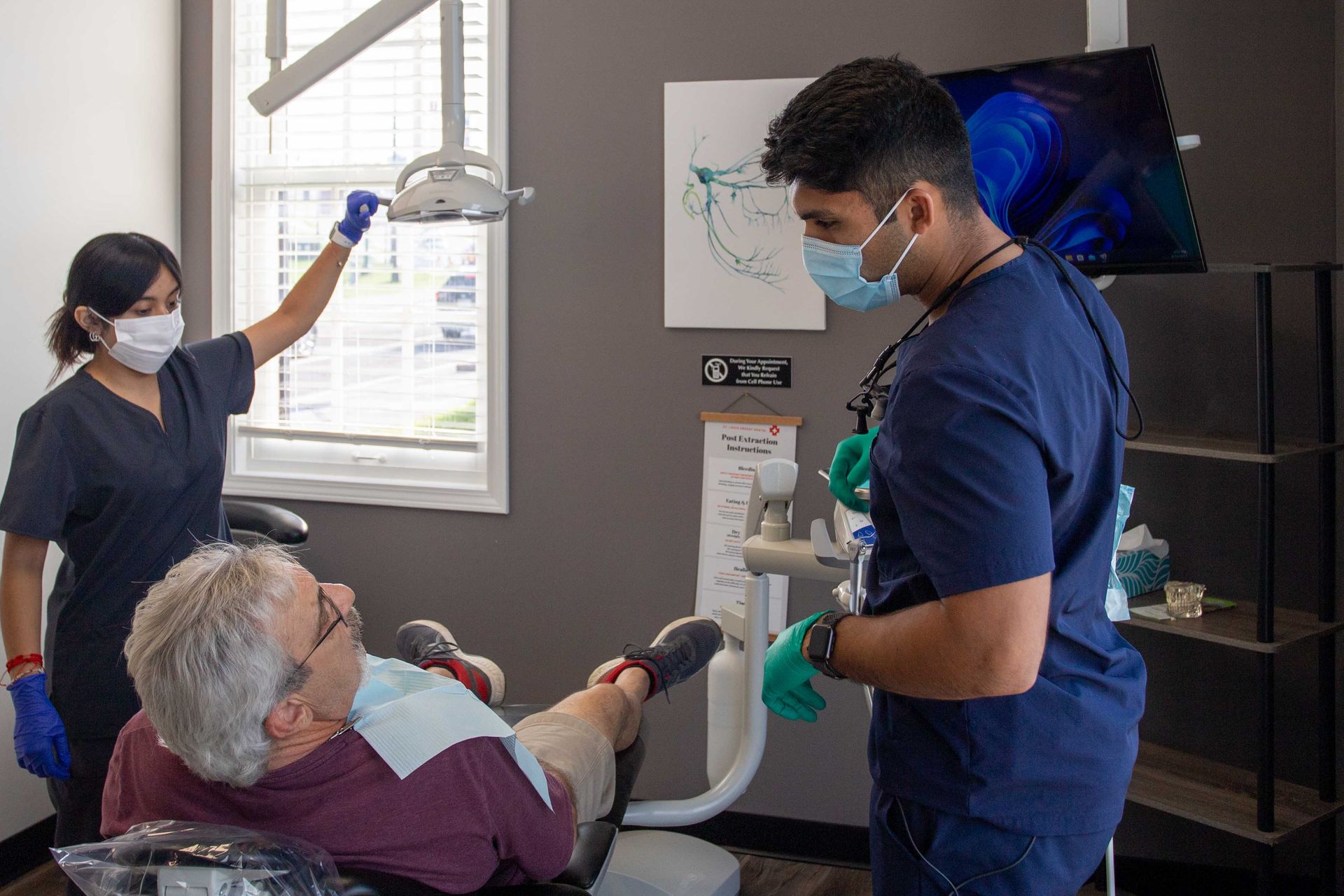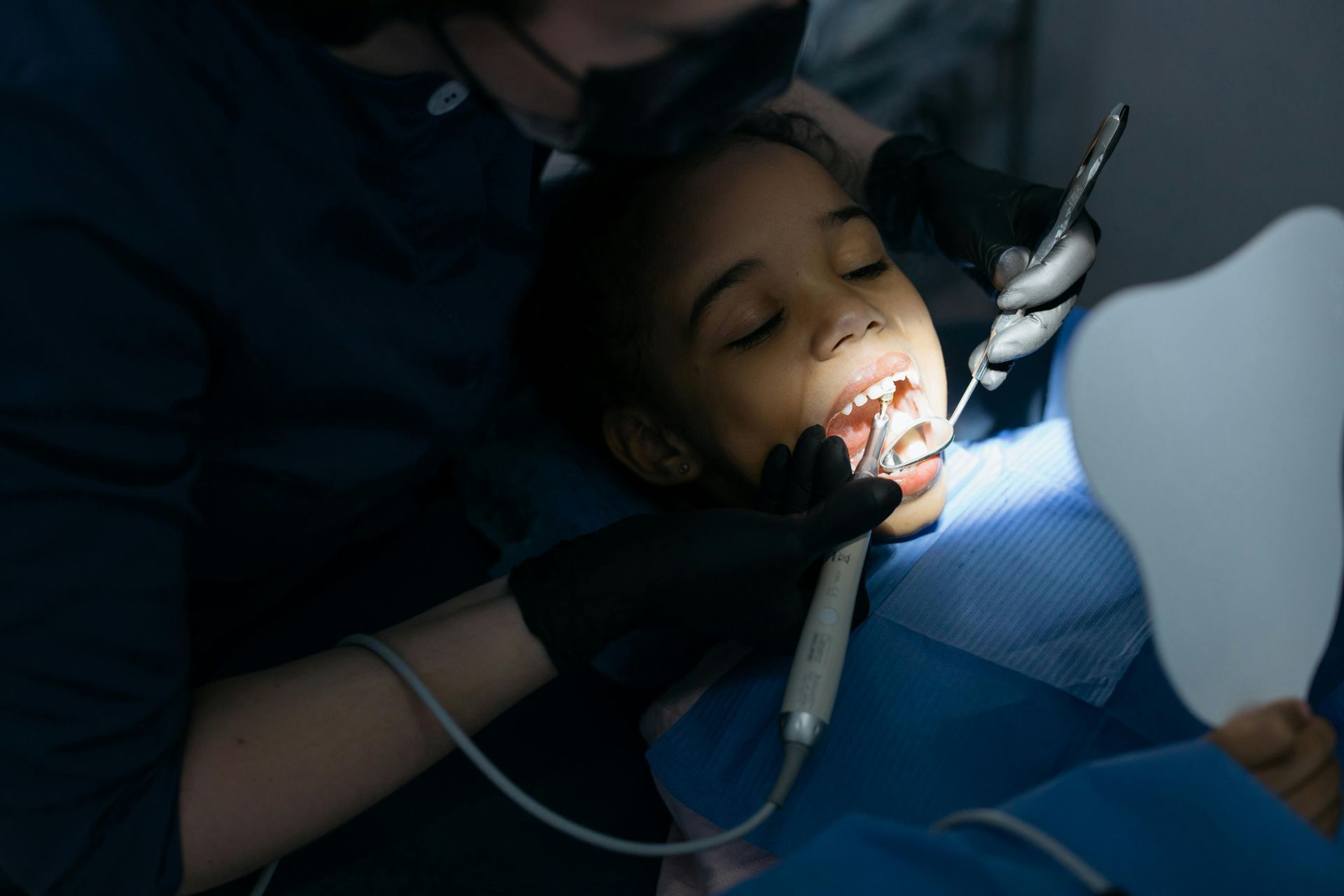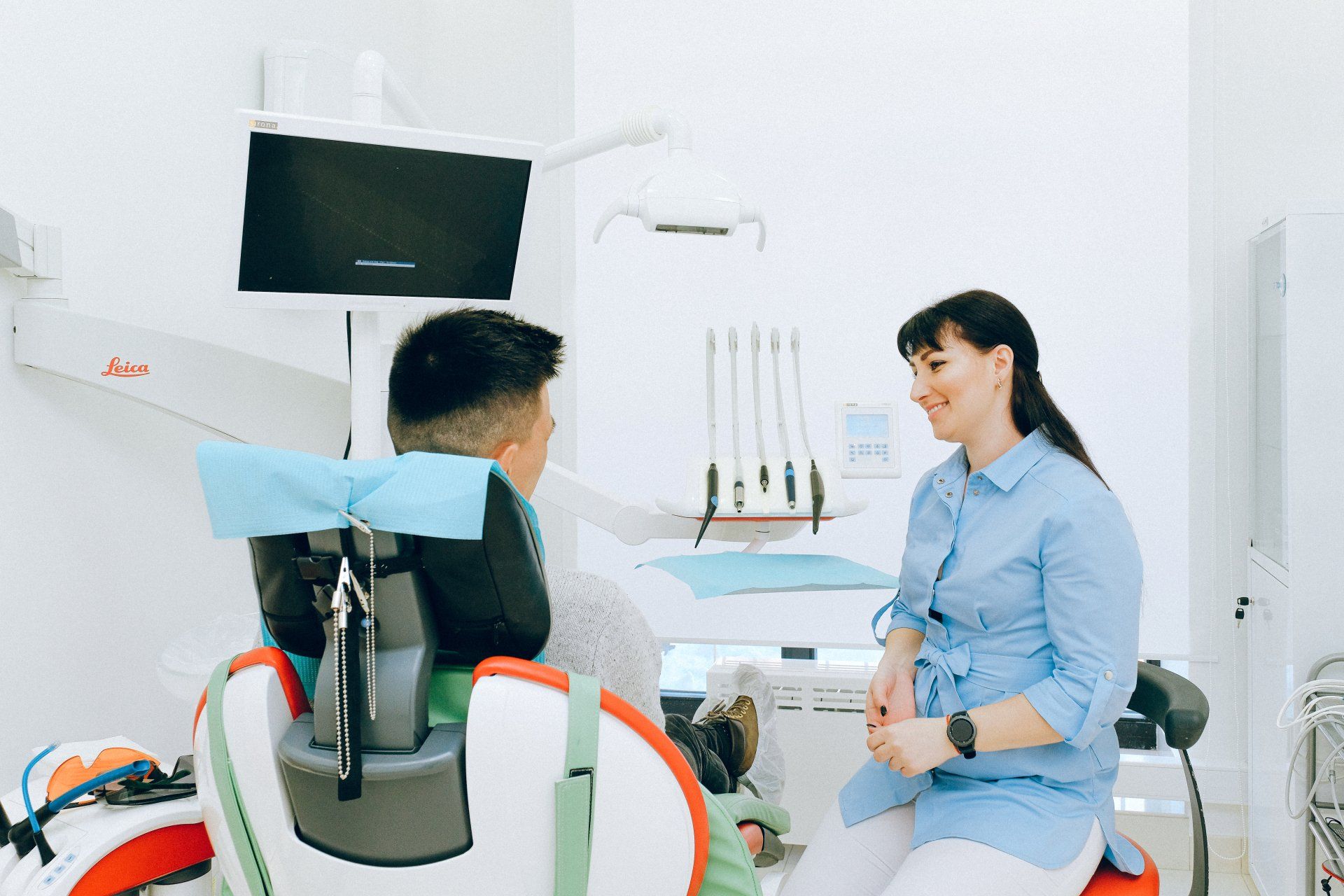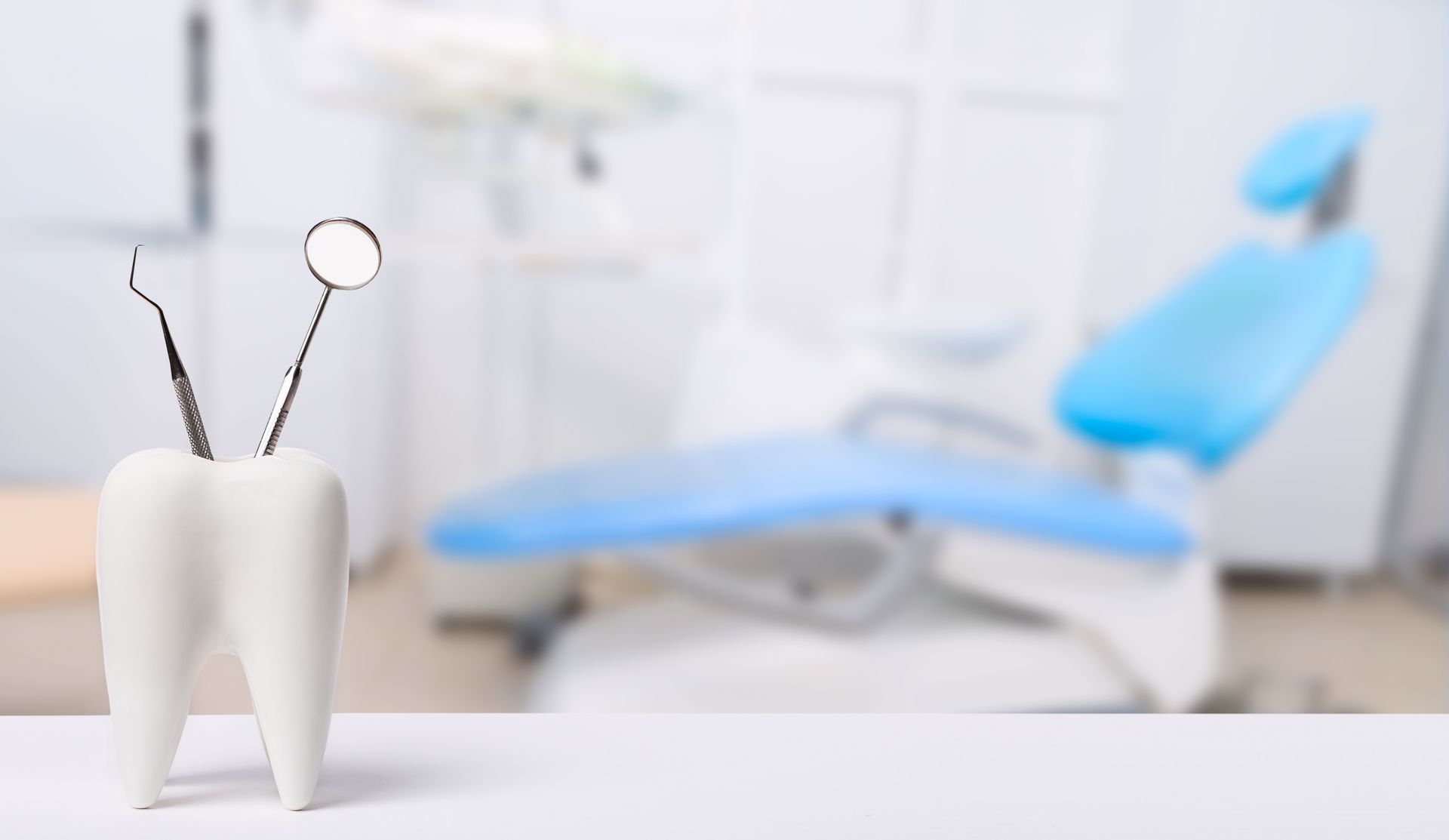Blog
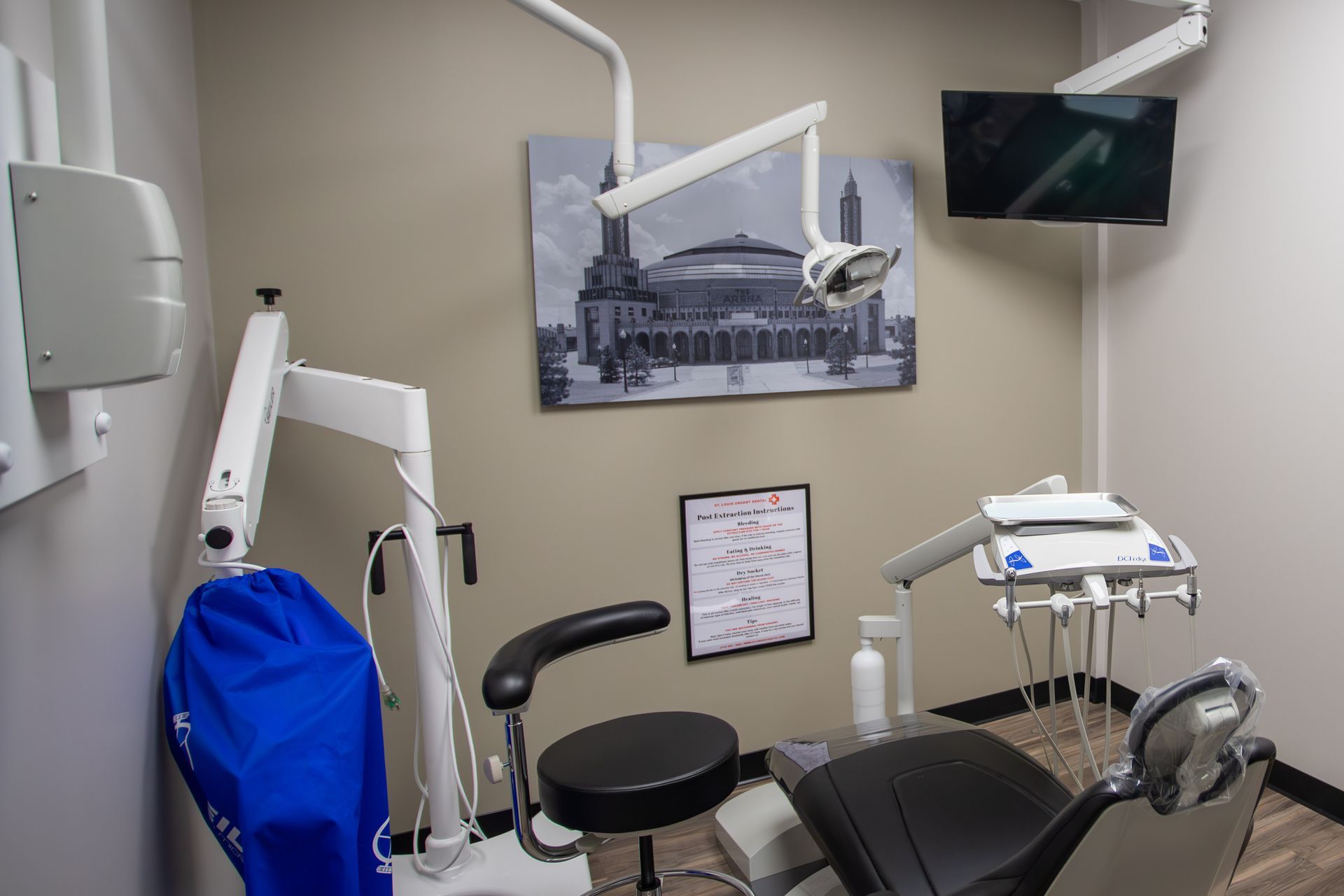
When it comes to dental care, your primary goal is always to preserve your natural teeth. However, there are instances where extraction becomes the best course of action to prevent further complications and alleviate pain. We recommend emergency tooth extractions when a tooth is severely damaged or infected and cannot be saved through other treatments such as root canals or crowns. Let's explore the common reasons for emergency extractions and what to expect during and after the process. Common Reasons for Emergency Extractions Severe Tooth Decay One of the most common reasons for emergency tooth extractions is severe tooth decay. When decay progresses extensively, it can compromise the tooth's structural integrity. Suppose the decay reaches the pulp or nerve of the tooth. In that case, it can cause excruciating pain and significantly increase the risk of infection. In such cases, an emergency extraction may be necessary to prevent the spread of infection and restore your oral health. Removing the decayed tooth can eliminate the source of pain and prevent further damage to surrounding teeth and tissues. Dental Trauma Accidents or injuries can result in severe dental trauma, such as a fractured or dislodged tooth. Extraction may be the best option when a tooth is beyond repair or poses a risk to your oral health. A strong dental care team should have extensive experience handling dental emergencies and providing immediate care for dental trauma. They will be equipped to assess the extent of the damage and determine whether an extraction is necessary to protect your oral health and alleviate pain. Problem-Focused Examination Before proceeding with an extraction, our dentists will perform a problem-focused examination of your dental condition, usually including X-rays, to assess the extent of the problem and determine the necessity of extraction. This thorough evaluation helps your dental team make informed decisions about your treatment and ensures the best possible outcome for your oral health.
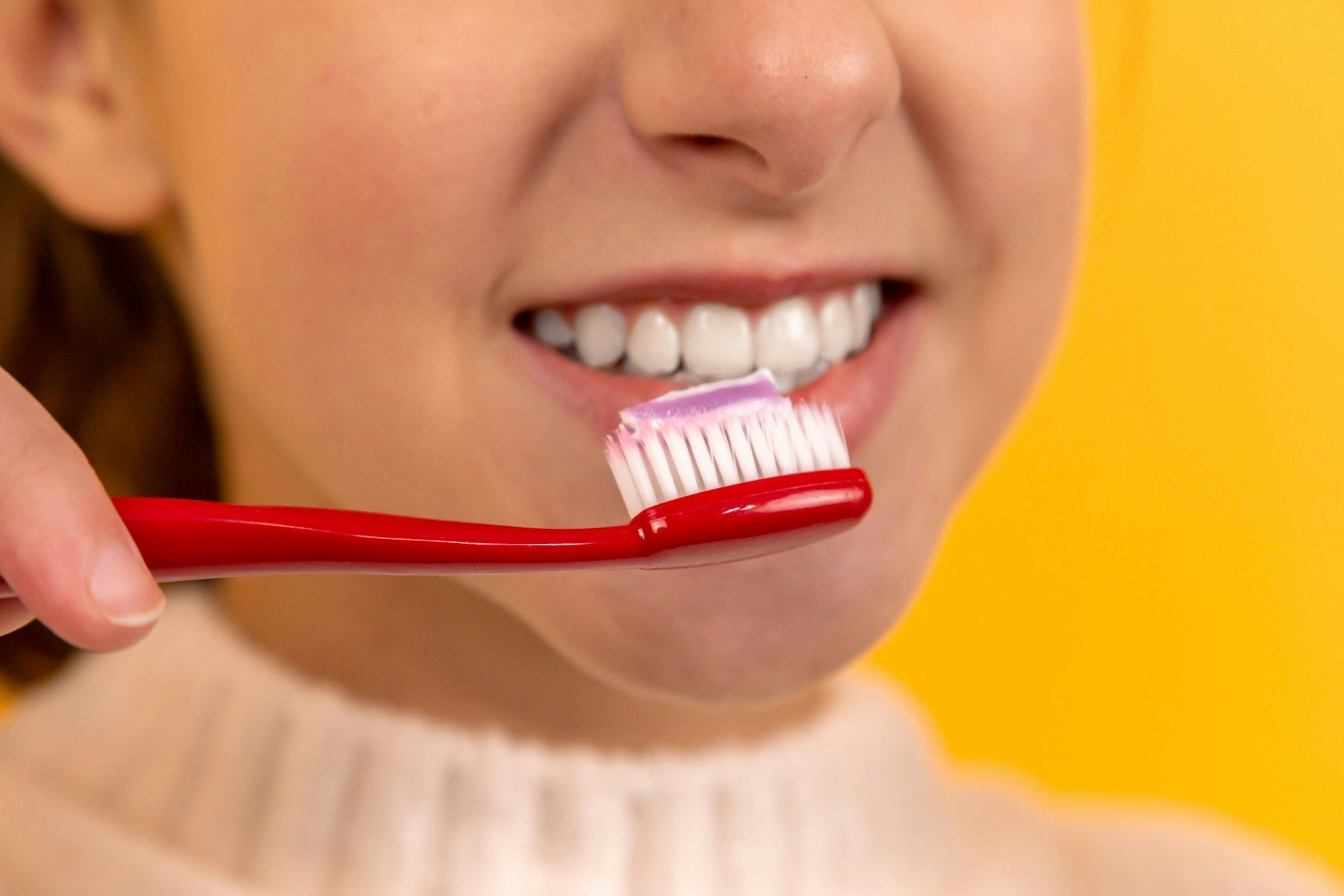
Maintaining good oral health is crucial for overall well-being. Yet, many people overlook the significant role that lifestyle choices play in the health of their teeth and gums. From smoking and excessive alcohol consumption to sugary drinks and poor dietary habits, various factors can have a profound impact on oral health. Let's explore how these lifestyle choices affect your oral health and what you can do to maintain a healthy smile. Smoking and Oral Health Smoking is not only detrimental to your lungs but also wreaks havoc on your oral health. The chemicals in tobacco smoke can irritate gum tissue, leading to inflammation and increasing the risk of gum disease. Moreover, smoking restricts blood flow to the gums, impairing their ability to fight off infection and heal properly. Over time, smokers are more likely to experience tooth loss and other serious oral health issues. Quitting smoking is essential for preserving the health of your teeth and gums, and seeking support from healthcare professionals can significantly improve your chances of success. Alcohol Consumption and Oral Health Excessive alcohol consumption is another lifestyle factor that can harm your oral health. Alcohol dries out the mouth, reducing saliva production and creating an environment conducive to bacterial growth; this increases the risk of cavities, gum disease, and even oral cancer. While moderate alcohol consumption may not pose significant risks, it's essential to be mindful of your intake and practice moderation. Drinking plenty of water can help keep your mouth hydrated and flush out harmful bacteria, promoting better oral health. Soda and Carbonated Drinks Sugary drinks like soda and carbonated beverages are a significant culprit behind tooth decay and erosion. These drinks contain excessive sugar, which bacteria in the mouth feed on, producing acids that attack tooth enamel. Additionally, the carbonation in these beverages increases their acidity, further eroding enamel and weakening teeth. Limiting your consumption of sugary drinks and opting for water or unsweetened beverages can significantly reduce your risk of dental problems.

A root canal is a dental procedure used to treat infection at the center of a tooth (the pulp). The pulp is the soft tissue inside the tooth that contains nerves, blood vessels, and connective tissue. During a root canal, the infected or inflamed pulp is removed, the inside of the tooth is cleaned and disinfected, and then it is filled and sealed to prevent further infection. Let's look at common questions about root canals so you can keep yourself and your family informed and safe. What Causes a Root Canal? Root canal treatment becomes necessary when the pulp inside a tooth becomes infected or inflamed; this can happen for a couple of different reasons: Deep Decay: Bacteria can enter the pulp through cavities that have penetrated deep into the tooth. Trauma: A cracked or broken tooth can expose the pulp to bacteria. Repeated Dental Procedures: Multiple dental procedures on the same tooth can cause irritation and inflammation of the pulp. Tooth Fracture: A fracture that extends into the pulp can lead to infection. Advantages of Having a Root Canal Saves Natural Tooth: Root canal treatment allows you to keep your natural tooth, which is often the best option for oral health and function. Relieves Pain: Root canal therapy alleviates the pain and discomfort associated with a tooth infection or inflammation. Prevents Further Infection: By removing the infected pulp and sealing the tooth, root canal treatment prevents the spread of infection to surrounding tissues. Restores Function : After a root canal, the tooth can continue functioning normally for biting and chewing.
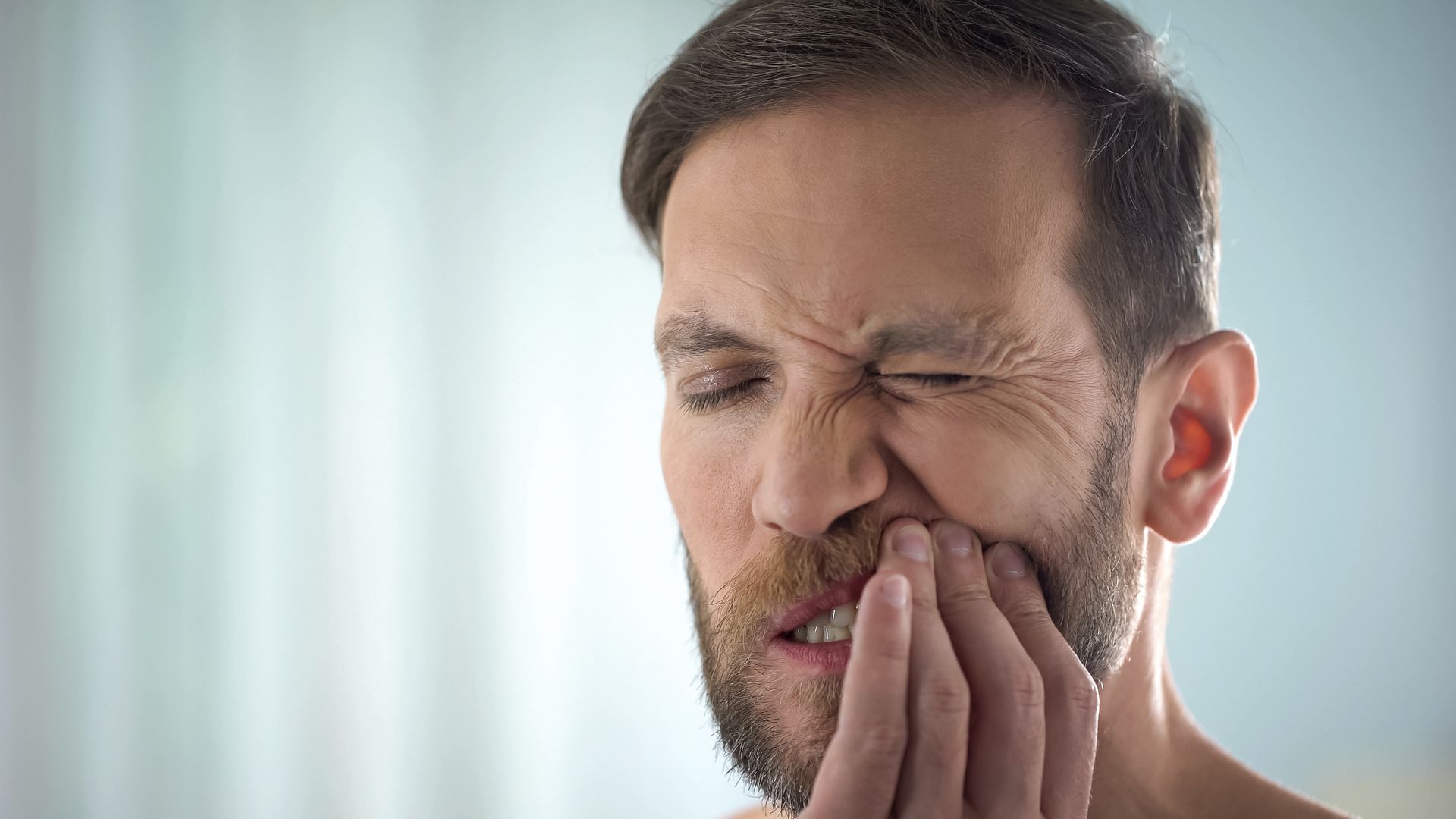
Our gums are an integral part of our oral health and our smiles. While teeth themselves can often be an indicator of dental issues, the gums also provide essential insights. Periodontitis is a gum infection that can damage the soft tissue around our teeth. Unfortunately, gum disease is relatively common and can lead to further oral health issues. Let's look at what periodontitis is and some prevention tips. Symptoms Dental professionals should be able to identify any gum-related issues right away during your regular office visit. However, you can watch for symptoms independently if you suspect you have a problem. If your gums are bleeding easily, swollen, bright red, or purple, and you spit out blood when brushing your teeth, there may be cause for concern. Another sign of periodontitis can be painful chewing and your gums feeling tender when touched. If some of these symptoms appear, it's better to be safe than sorry and mention it to your dental team. Causes The Mayo Clinic reports several causes for periodontitis; most often, plaque is the culprit. Plaque is a film of bacteria that can form over teeth when sugars in food interact with your mouth's bacteria and stick around. A regular brushing and flossing schedule can usually keep plaque at bay. If plaque hardens under the gum line, it can form into tartar, which is trickier to remove and requires a professional. Plaque and tartar can fill in pockets between your gums and teeth and lead to irritation, swelling, and periodontitis. Other causes can include: Brushing your teeth too aggressively Trauma to your gum tissue Smoking tobacco Oral piercings (lip & tongue) Who is At Risk? Anyone can develop periodontitis or have gum recession, but those over the age of 65 are most at risk. Cleveland Clinic reports that there is an increased risk for anyone who has mouth piercings, uses chewing tobacco, and has had braces or other orthodontic treatments. Hormonal changes can also play a role, so women who are pregnant or going through menopause may be at increased risk. Further, those with poor nutrition habits, especially those lacking vitamin C, are also at risk.
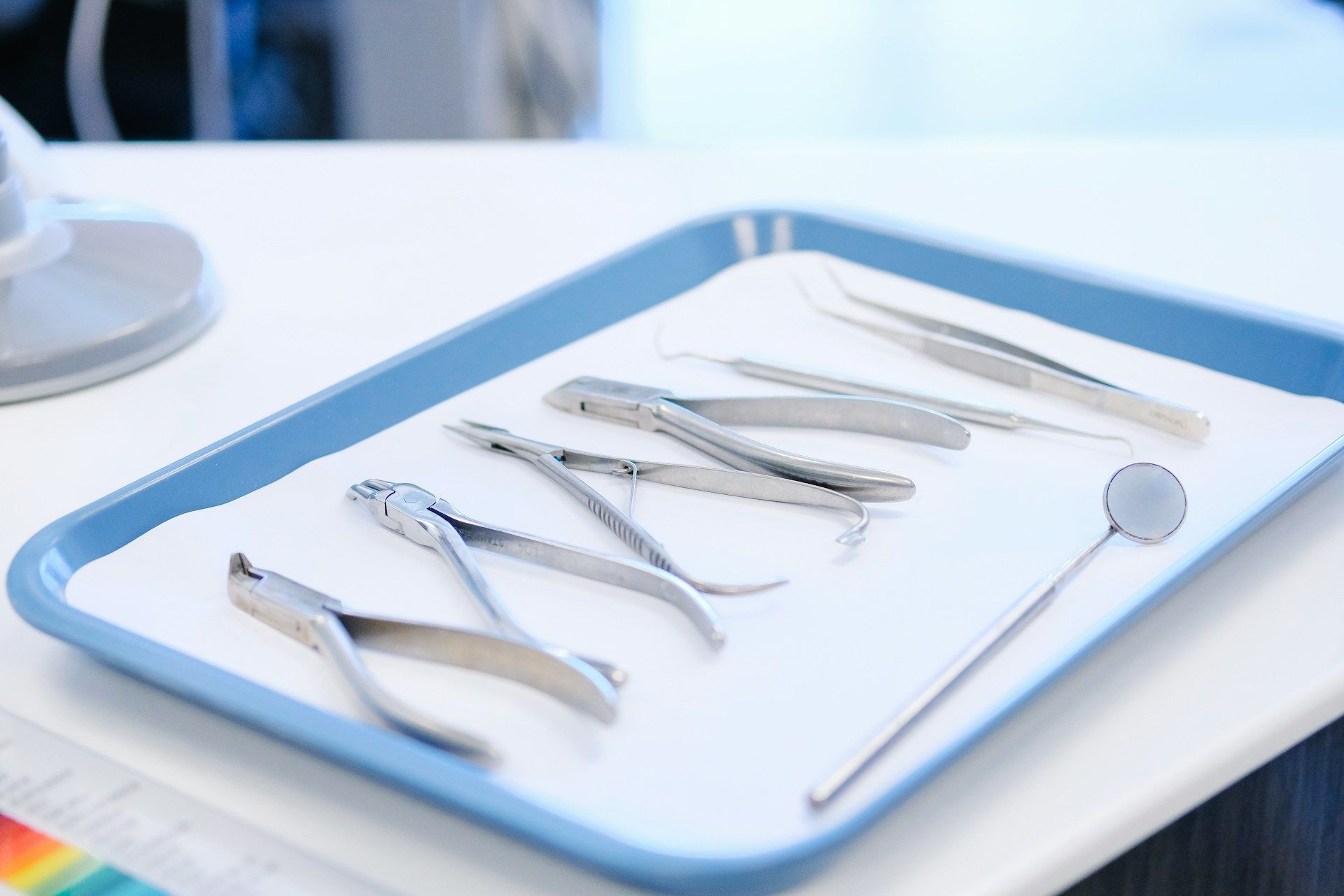
Dental care is an essential aspect of human health that has evolved significantly throughout history. Dentistry has undergone remarkable transformations from ancient to modern times, reflecting technological advancements, knowledge, and societal needs. Examine dentistry through history as we explore the fascinating evolution of dental practices. Ancient Dental Practices Evidence suggests that rudimentary forms of dental care existed in ancient civilizations such as Egypt and Mesopotamia. Early dental practitioners relied on essential tools and techniques for procedures (such as tooth extractions). These early practices were often intertwined with beliefs in supernatural causes of dental issues, leading to rituals and ceremonies alongside practical treatments. Dental Practices in Classical Antiquity The ancient Greeks and Romans made significant contributions to dental care, with notable figures like Hippocrates and Celsus discussing dental diseases and treatments. Dental care during this period involved tooth cleaning, extraction, and herbal remedies for pain relief. Despite limited understanding of anatomy, these civilizations laid the foundation for future advancements in dentistry. Middle Ages and Renaissance Dental Practices The Middle Ages saw a decline in dental knowledge in Europe, with dental care often provided by untrained individuals such as barber surgeons. However, the Renaissance saw a revived interest in medical and dental sciences. Dental practitioners began to emerge as distinct professionals, and the era saw the development of more sophisticated tools and techniques for dental procedures. Modernization of Dentistry in the 18th and 19th Centuries The 18th and 19th centuries marked a significant period of modernization for dentistry. Pioneers like Pierre Fauchard and John Baker made groundbreaking contributions to the field, laying the foundation for dentistry as a recognized profession. During this time, advancements in practices (such as the introduction of dental amalgam for fillings and improved surgical techniques) revolutionized dental care.

A radiant smile is a family's best accessory, and maintaining optimal oral health is a collective effort. Let's explore the essential elements of a comprehensive family oral hygiene routine, covering aspects like flossing, brushing, regular checkups, and more. By tailoring these practices to different age groups, we aim to empower families to build habits that promote healthy smiles for a lifetime. Flossing Once a Day Flossing is a crucial but often overlooked step in oral hygiene. For kids, start with floss sticks or gentle floss to make it a fun and manageable activity. As teens gain independence, emphasize the importance of flossing in preventing cavities and gum disease. Adults should commit to daily flossing, using traditional floss or dental picks. Seniors dealing with potential arthritis may benefit from floss holders for easier maneuvering. Brushing at Least Twice a Day Proper brushing techniques are fundamental for maintaining healthy teeth and gums. For kids, introduce a toothbrush with soft bristles and a fun design to make brushing enjoyable. As teens transition to adulthood, encourage them to switch to adult-sized brushes and stress the importance of thorough cleaning. Adults should consider electric toothbrushes for optimal results, while seniors may opt for brushes with gentle bristles to accommodate potential gum sensitivity.

As the holiday season approaches, festivities, family gatherings, and indulgent feasts become the norm. Amidst the joy and celebration, it's easy for individuals to neglect their oral hygiene, putting their dental health at risk. However, with the new year approaching, it's the perfect time to instill better oral health habits. In this blog post, we'll explore the impact of holiday celebrations on oral health and provide practical tips to ensure a healthy and vibrant smile throughout the season and into the new year. The Impact of Holiday Celebrations on Oral Health The holiday season often brings an abundance of sugary and acidic foods, from decadent desserts to festive beverages. These indulgences can wreak havoc on our teeth, leading to cavities and other dental issues. Irregular eating patterns and constant snacking (common during holiday parties) contribute to the problem. Additionally, the consumption of alcohol can dry out the mouth, reducing saliva production and increasing the risk of tooth decay. Brushing and Flossing Remember to brush and floss regularly, especially during the holidays. If you have kids, encourage them to choose a soft-bristled toothbrush and fluoride toothpaste to take with them during holiday traveling. Provide tips on proper brushing techniques, emphasizing the need to brush for at least two minutes, reaching all surfaces of the teeth. Healthy Eating Habits During holiday gatherings, suggest and partake in tooth-friendly food choices like cheese, nuts, and crunchy vegetables. Limiting the consumption of sugary and acidic treats and including high-fiber foods in their diets is essential. Fiber-rich foods help stimulate saliva production, neutralize acids, and promote good oral health. Stay Hydrated Stress the importance of staying hydrated, especially when consuming alcohol or indulging in holiday treats. Water helps rinse the mouth, removing food particles and reducing the acidity that can harm tooth enamel. Staying hydrated is especially important while traveling. When traveling with children, parents should be sure to pack water bottles for the whole group and have designated "water breaks." Family Dental Challenges Make oral care a fun family affair by creating dental challenges—Challenge family members to a "two-minute brush-off" or a flossing competition. Parents can consider offering small rewards for consistent oral hygiene practices for their children. Stocking Stuffers for Oral Health Consider dental-friendly stocking stuffers like flavored toothpaste, fun toothbrushes, or sugar-free gum. By incorporating oral care into gift-giving traditions, you can make it an exciting part of the holiday season. Setting Oral Health Resolutions Everyone should set specific oral health goals for the new year. Whether committing to daily flossing, reducing sugary snacks, or attending regular dental check-ups, having clear resolutions can motivate positive habits. Scheduling Dental Check-ups Stress the importance of regular dental check-ups and offer convenient scheduling options for the new year. Starting the year with a comprehensive dental examination allows for the early detection and prevention of potential issues.
